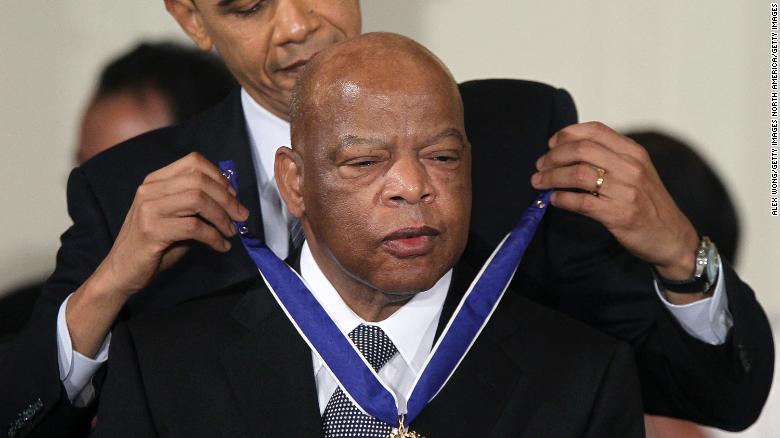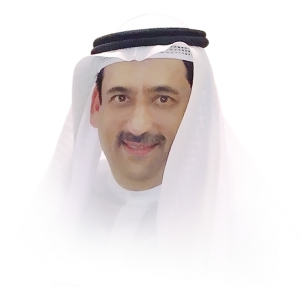The news of his death was absolutely shocking to everyone who herd it, but was much more so to those who worked closely with him during his lifetime, including myself. However, that was the wish of our creator, and there is absolutely nothing anyone could do about it. As the Muslim prayer says in part : “sote ni waja wake, na kwake tutarejea”.
May the lord God grant eternal peace to our dear departed former leader.
The attributes of former President Mkapa.The late former President Benjamin Mkapa, was a man of many attributes.
In the first place, he was well grounded in scholarship. And he used his scholarship generously for the public benefit, in accordance with the CCM dictum “nitajilielimisha kwa kadri ya uwezo wangu, na nitatumia elimu yangu kwa faida ya wote”. His latest scholarly production being his autobiography book titled My Life, My Purpose”; which he inaugurated on the anniversary date of his 81st birthday, 12th November last year. On that occasion, the print media, quite rightly, was awash with deserved praises for Hon. Mkapa and his new book. Unfortunately for me, because I am currently nestled smugly in my cozy retirement home far away in Ukerewe Island, I was not able to attend the occasion, although I had been invited by personal letter from Mr. Mkapa himself.
But I watched and listened to the live broadcasts of that event; and, based on the comments made by President Magufuli in his televised speech delivered at that inauguration event; I concluded that Hon Mkapa’s book is a ‘must read’ material; for it is a masterpiece wisdom tome.
His scholarly talents are vividly displayed in that book. “Curiosity killed the cat”, so says one English proverb. Thus, being aware of Mkapa’s mastery of the English language, I was particularly curious to see the inevitably fabulous English language in which that book is written. Former President Benjamin Mkapa was a student at the famous Makerere University College in Uganda, at that time known as ‘the University College of East Africa, affiliated to London University’ .
That Institution was, in reality, an “ivory tower”, established by the British Authorities in this East Africa part of the then vast “British Empire”. (There was an exact replica Institution in West Africa, then known as “The University College of West Africa” based in Accra, Ghana, also affiliated to London University; which was catering for that part of the very vast British Empire “upon which”, it was proudly asserted, “the sun never sets”.
These Educational Institutions were established, partly for the grand purpose of spreading the ‘Gospel’ of British culture, language being an essential component of any culture. Thus, the relevant University Authorities decided to introduce at Makerere, a single-subject first degree programme, then known as the ‘B.A. English (Honours)’ degree; and Benjamin William Mkapa was one of the very few students who qualified for admission to that programme. He therefore graduated from Makerere with a London University Bachelor’s (Honours) degree in English Literature.
That Institution was, in reality, an “ivory tower”, established by the British Authorities in this East Africa part of the then vast “British Empire”. (There was an exact replica Institution in West Africa, then known as “The University College of West Africa” based in Accra, Ghana, also affiliated to London University; which was catering for that part of the very vast British Empire “upon which”, it was proudly asserted, “the sun never sets”.
These Educational Institutions were established, partly for the grand purpose of spreading the ‘Gospel’ of British culture, language being an essential component of any culture. Thus, the relevant University Authorities decided to introduce at Makerere, a single-subject first degree programme, then known as the ‘B.A. English (Honours)’ degree; and Benjamin William Mkapa was one of the very few students who qualified for admission to that programme. He therefore graduated from Makerere with a London University Bachelor’s (Honours) degree in English Literature.
Both his spoken deliveries, as well as his written texts, provide sufficient evidence of his exceptional mastery of the Queen’s language. Thus, I assumed that this particular aspect would be a dominant feature of his new book; which is what accounts for my curiosity mentioned above. My curiosity was entirely satisfied when I subsequently read the book.
My personal working relationships with President Mkapa.
.In his speech at the inauguration ceremony of Mkapa’s book, President Magufuli obligingly made certain candid comments regarding the ‘huge, unequivocal, trust and support’ that he himself had received from President Mkapa, during the time when he was a Minister in President Mkapa’s Government. I too, have some very pleasant memories of President Mkapa’s trust in me, when I was the Speaker of Parliament during the whole of his ten years as President.
I had been elected Speaker of the National Assembly in April 1994, upon the retirement of veteran Speaker Adam Sapi Mkwawa. But I was re-elected in 1995, when Benjamin William Mkapa was first elected to the Presidency. The two of us served concurrently in our respective capacities for ten years, until 2005. During that period, we developed a very close affinity in terms of cordial cooperation, genuine trust, and mutual respect.
President Mkapa appeared to have a great deal of trust in me personally. The first indicator of this trust was when he was making his choice of Prime Minister in 1995. Immediately after he had settled on the name of his choice, he sent for me, in order to seek advice on whether, in my opinion, since this person was a rather low profile politician, his choice would be acceptable to the members of Parliament when it is presented to them for confirmation. He said he was prepared to make another choice, depending on my advice. I gave him the assurance that he had made a good choice, and that Parliament would most certainly endorse his choice.
It is also during this period when the death occurred of the father of the nation, Mwalimu Julius Nyerere, in a London hospital on 14th October, 1999. As is customary, the normal arrangements were made for paying the last respects the body of the late founder President Mwalimu Nyerere at the National stadium in Dar es Salaam. And because of Mwalimu Nyerere’s high personal social status and world renown, this event attracted a huge gathering of distinguished guests, including a large number of foreign Heads of States and Governments. Under normal circumstances, the funeral committee prepares the obituary message that is normally read out during the funeral proceedings. But no, not on this occasion, when President Mkapa decided, late in the evening of the day before the appointed day for this function, that I should prepare the obituary statement and read it out at that function the next morning.
He was obviously confident thatI could do it, even at such short notice. And I dutifully accomplished that assignment.
I also remember how, in his first term in office, President Mkapa sent me to Kampala, Uganda on a rather delicate political mission; which was to help President Yoweri Museveni, to succeed in the seemingly difficult task of convincing his NRM Parliamentarians, to accept the need for that country to change to the multi-party political system. President Museveni had, apparently, been greatly impressed by Tanzania’s smooth transition to that system. Thus, he had asked President Mkapa to send a trusted envoy to Kampala, who would help to persuade the Uganda NRM members of Parliament to see the good side of multi-party politics, by explaining to them the Tanzanian successful experience in that regard. Once again, President Mkapa decided to give that assignment to me, another demonstration of his genuine trust and confidence in me.
Our close cooperation in running the affairs of State.
It is presumably common knowledge that the Government of any country is sustained by three pillars: the Government (the Executive); the Legislature; and the Judiciary. President Mkapa was of the settled view that without the full support of the Legislature, the Government would not be able to function effectively. This is because the Government needs Parliament’s approval for its annual budgets, and, obviously, without money with which to fund its social and economic infrastructure projects, its operations will be totally paralyzed. Similarly, the Government is enjoined to observe the rule of law in all its administrative activities, and it is only Parliament which is empowered to pass the necessary laws which are required for the country’s good governance. Thus, without such laws being enacted by Parliament, the Government will be negatively impacted in its operations.
President Mkapa was keenly aware of these governance imperatives. He therefore wholeheartedly devoted himself to establishing cordial working relations with me the Speaker, being the Head of that institution. And indeed, we achieved many positive results because of this close cooperation, through constant communication and consultations.
President Mkapa was a seasoned diplomat.
Another of President Mkapa’s major personal attributes, was his accomplishment in diplomacy. This is evidenced by his deployment separately by the United Nations and the African Union, to mediate in conflicts afflicting our neighbouring countries of Burundi, and Kenya.
The long lasting Burundi tribal conflict has defied all international efforts to find a lasting solution. During his life time, Mwalimu Nyerere had been invited to make his influential contribution to these efforts, but he died before a settlement could be reached. President Mkapa was subsequently invited to also make his contribution, which he did with great negotiating skills, but had to give up when he felt that his efforts were being wasted, as they were not likely to produce the desired results.
However, he was much more successful in his mediation efforts in the case of Kenya, which had been plunged into a serious political crisis as a result of their disputed 2002 general elections. On that occasion, President Mkapa’s mediation team, which included former Secretary General of the United Nations Dr. Kofi Annan from Ghana; successfully negotiated the agreement which led to the formation of a Government of national unity in Kenya, with Raila Odinga, the leader of the party that had lost the election, being appointed Prime Minister.
President Mkapa’s declared policy of ‘Uwazi na Ukweli’.
Upon assuming office after winning the 1995 Presidential election, President Mkapa promised that he would implement the policy of ‘transparent Government’. He was of the firm view that, in his own words, “in a democratic society, the people have the right to be informed about what the Government is doing on all issues of concern to them”; and, indeed, he faithfully implemented this policy, by introducing the Presidential monthly addresses to the people through the mass media, for the purpose of keeping the public fully informed of what he Government was doing, and why. He also promptly established in his Office, a Directorate of Presidential Communications; and also directed that a senior official be designated in each Ministry, whose main responsibility would be to inform the public, through the media, of what his Ministry was doing. Furthermore, he informed me that he would be coming to address Parliament frequently, in order to keep the representatives of the people informed of what the Government is doing. “Uwazi, na Ukweli”. May his soul rest in eternal peace, AMEN.
piomsekwa@gmail.com /0754767576.
I would like to encourage all those who want to pay proper tribute to the late former President Benjamin Mkapa, to read his recent book, which is available in many bookshops. In that book the author has detailed all the results of his endeavours, both the positive achievements, as well as the inevitable failures. That book is what says it all about our departed leader. May his soul rest in eternal peace.
Source: Cd Pius Msekwa,














